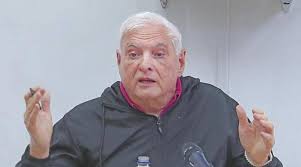Court rejects Martinelli’s $20 million lawsuit against judge
The Third Civil Court did not accept a lawsuit for $20 million in compensation presented by former President Ricardo Martinelli against the judge of the Superior Court for Settlement of Criminal Cases, Manuel Mata Avendaño.
Mata was the speaker of the appeal that Martinelli and other defendants accused of money laundering presented against the conviction handed down by criminal judge Baloisa Marquínez, in the New Business case. The Superior Court of Liquidation confirmed the judge's decision, which for Martinelli means a sentence of 10 years and 8 months in prison and the payment of a fine of $19.2 million.
In his civil lawsuit, the former president questioned that Mata granted each of the defense attorneys a period of 15 simultaneous (and not consecutive) days to present an appeal in the New Business case.
A press release from the Judicial Branch specifies that civil judge Nelson Riquelme considered that the claim presented by Martinelli is inadmissible in the civil sphere and that it should be processed in the administrative litigation sphere in the Third Chamber of the Supreme Court (CSJ).
In addition to being a judge in the Superior Liquidation Court, Mata is a substitute for Judge Ariadne García in the Criminal Chamber of the CSJ.
Judge Riquelme specifies that, because he belongs to the ordinary civil jurisdiction, he lacks jurisdiction to hear the lawsuit filed by lawyer Felipe Sánchez Castillo, representing Martinelli.
Martinelli's lawyers also filed a criminal complaint against Judge Mata for the alleged commission of a crime against public faith and illicit association to commit a crime, for allegedly having delivered the New Business file incompletely on a USB device.
Martinelli is seeking asylum in the Nicaraguan embassy in Panama, after alleging alleged political persecution and stating that his life is in danger.
The New Business conviction means that he will not be able to participate in the May 5 election, since the Constitution prohibits the election of a president of the Republic who has a prison sentence of five years or more.
